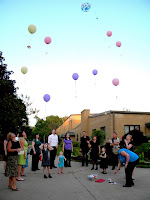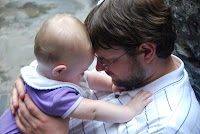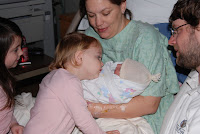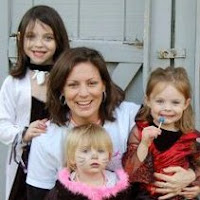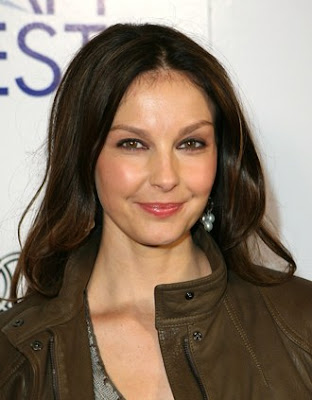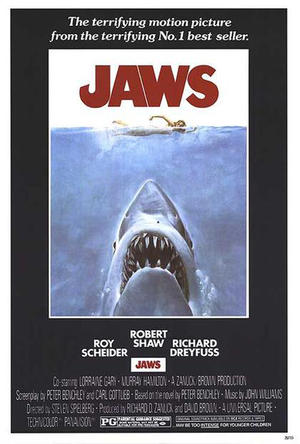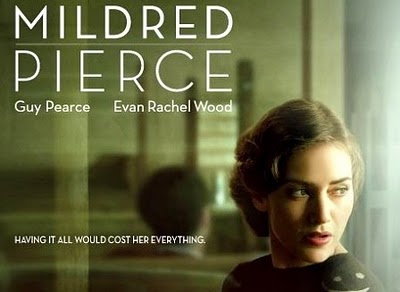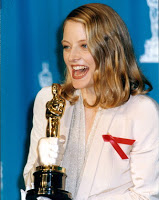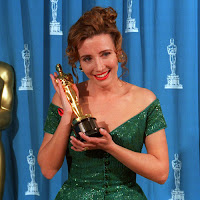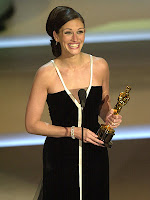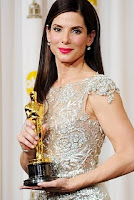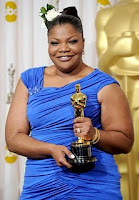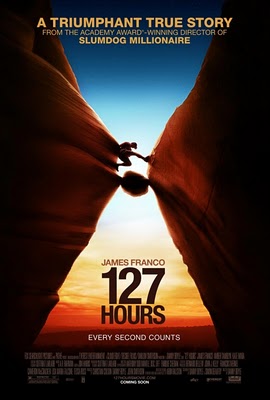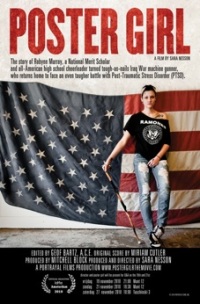This past Monday,
Total Film published its list of the 100 Greatest Female Characters. As everyone knows, these Best Ever lists tend to have the pretty obvious problem of not being able to
include everyone and, therefore, not being able to
please everyone. But we here at
Bitch Flicks found this particular list more problematic than usual. For a variety of reasons. Before we discuss the WTF-FAIL of this, check out the list below and/or scroll through the
photo-list at
Total Film (especially if you’re interested in their use of sexist language and images).
100. Baby from Dirty Dancing, played by Jennifer Grey
99. Cherry Darling from Planet Terror, played by Rose McGowan
98. Vivian Ward from Pretty Woman, played by Julia Roberts
97. Samantha Baker from Sixteen Candles, played by Molly Ringwald
96. Stifler’s Mom from American Pie, played by Jennifer Coolidge
95. Layla from Buffalo ’66, played by Christina Ricci
94. Marquise de Merteuil from Dangerous Liaisons, played by Glenn Close
93. Karen Silkwood from Silkwood, played by Meryl Streep
92. Marnie Edgar from Marnie, played by Tippi Hedren
91. Briony Tallis from Atonement, played by Saoirse Ronan
90. Gertie from E.T. The Extra Terrestrial, played by Drew Barrymore
89. Mrs. Danvers from Rebecca, played by Judith Anderson
88. Jean Brodie from The Prime of Miss Jean Brodie, played by Maggie Smith
87. Malena Scordia from Malena, played by Monica Bellucci
86. Audrey 2 from Little Shop of Horrors, voiced by Levi Stubbs
85. Gilda Mundson Farrell from Gilda, played by Rita Hayworth
84. Matty Walker from Body Heat, played by Kathleen Turner
83. Annie Savoy from Bull Durham, played by Susan Sarandon
82. Severine Serizy from Belle Du Jour, played by Catherine Deneuve
81. Gloria Swenson from Gloria, played by Gena Rowlands
80. Catherine Tramell from Basic Instinct, played by Sharon Stone
79. Phyllis Dietrichson from Double Indemnity, played by Barbara Stanwyck
78. Bess McNeill from Breaking the Waves, played by Emily Watson
77. Thelma Dickinson from Thelma and Louise, played by Geena Davis
76. Alabama Whitman from True Romance, played by Patricia Arquette
75. Coraline from Coraline, voiced by Dakota Fanning
74. Annie Porter from Speed, played by Sandra Bullock
73. Kate “Ma” Barker from Bloody Mama, played by Shelley Winters
72. Marge Gunderson from Fargo, played by Frances McDormand
71. Elisabet Vogler from Persona, played by Liv Ullmann
70. Sally Albright from When Harry Met Sally, played by Meg Ryan
69. Bonnie Parker from Bonnie and Clyde, played by Faye Dunaway
68. Ada McGrath from The Piano, played by Holly Hunter
67. Soshanna Dreyfus from Inglourious Basterds, played by Melanie Laurent
66. Alice Hyatt from Alice Doesn’t Live Here Anymore, played by Ellen Burstyn
65. Lee Holloway from Secretary, played by Maggie Gyllenhaal
64. Barbarella from Barbarella, played by Jane Fonda
63. Annie Wilkes from Misery, played by Kathy Bates
62. Sylvia from La Dolce Vita, played by Anika Ekberg
61. Regan MacNeil from The Exorcist, played by Linda Blair
60. Mary Poppins from Mary Poppins, played by Julie Andrews
59. Mildred Pierce from Mildred Pierce, played by Joan Crawford
58. Margo Channing from All About Eve, played by Bette Davis
57. Adrian Pennino Balboa from Rocky, played by Talia Shire
56. Nikita from La Femme Nikita, played by Anne Parillaud
55. “Baby” Jane Hudson from Whatever Happened to Baby Jane?, played by Bette Davis
54. Summer Finn from 500 Days of Summer, played by Zooey Deschanel
53. Judy Barton/Madeleine Elster from Vertigo, played by Kim Novak
52. Debby Marsh from The Big Heat, played by Gloria Grahame
51. Amelie from Amelie, played by Audrey Tautou
50. Jessie from Toy Story 2, voiced by Joan Cusack
49. Nurse Ratched from One Flew Over the Cuckoo’s Nest, played by Louise Fletcher
48. Alex Forrest from Fatal Attraction, played by Glenn Close
47. Evelyn Mulwray from Chinatown, played by Faye Dunaway
46. Blanche Dubois from A Streetcar Named Desire, played by Vivien Leigh
45. Paikea Apirana from Whale Rider, played by Keisha Castle-Hughes
44. Charlotte from Lost In Translation, played by Scarlett Johansen
43. Ofelia from Pan’s Labyrinth, played by Ivan Baquero
42. Margot Tenenbaum from The Royal Tenenbaums, played by Gwyneth Paltrow
41. Holly Golightly from Breakfast at Tiffany’s, played by Audrey Hepburn
40. Mindy “Hit Girl” Macready from Kick-Ass, played by Chloe Moretz
39. Chihiro Ogino from Spirited Away, voiced by Rumi Hiragi
38. Mia Williams from Fish Tank, played by Katie Jarvis
37. Jessica Rabbit from Who Framed Roger Rabbit, voiced by Kathleen Turner
36. Older Daughter from Dogtooth, played by Aggeliki Papoulia
35. Ursa from Superman II, played by Sarah Douglas
34. Ann Darrow from King Kong, played by Fay Wray
33. Betty Elms/Diane Selwyn from Mulholland Dr., played by Naomi Watts
32. Scarlett O’Hara from Gone With the Wind, played by Vivien Leigh
31. Coffy from Coffy, played by Pam Grier
30. Kym from Rachel Getting Married, played by Anne Hathaway
29. Trinity from The Matrix, played by Carrie-Anne Moss
28. Lady from Lady and the Tramp, voiced by Barbara Luddy
27. Louise Sawyer from Thelma and Louise, played by Susan Sarandon
26. Nina Sayers from Black Swan, played by Natalie Portman
25. Enid from Ghost World, played by Thora Birch
24. Rosemary Woodhouse from Rosemary’s Baby, played by Mia Farrow
23. Mrs. Robinson from The Graduate, played by Anne Bancroft
22. Dory from Finding Nemo, voiced by Ellen Degeneres
21. Veronica Sawyer from Heathers, played by Winona Ryder
20. Mia Wallace from Pulp Fiction, played by Uma Thurman
19. Clarice Starling from The Silence of the Lambs, played by Jodie Foster
18. Laurie Strode from Halloween, played by Jamie Lee Curtis
17. Carrie White from Carrie, played by Sissy Spacek
16. Bridget Gregory from The Last Seduction, played by Linda Fiorentino
15. Catwoman from Batman Returns, played by Michelle Pfeiffer
14. Matilda from The Professional, played by Natalie Portman
13. Lisbeth Salander from The Girl with the Dragon Tattoo, played by Noomi Rapace
12. Jackie Brown from Jackie Brown, played by Pam Grier
11. Eli from Let the Right One In, played by Lina Leandersson
10. Sugar Kane Kowalczyk from Some Like It Hot, played by Marilyn Monroe
9. Hildy Johnson from His Girl Friday, played by Rosalind Russell
8. The Bride from Kill Bill, played by Uma Thurman
7. Hermione Granger from Harry Potter, played by Emma Watson
6. Dorothy Gale from The Wizard of Oz, played by Judy Garland
5. Princess Leia Organa from Star Wars, played by Carrie Fisher
4. Clementine Kruczynski from Eternal Sunshine of the Spotless Mind, played by Kate Winslet
3. Sarah Connor from The Terminator, played by Linda Hamilton
2. Annie Hall from Annie Hall, played by Diane Keaton
1. Ellen Ripley from Alien, played by Sigourney Weaver
Well. Let’s discuss the most ridiculous, WTF-FAIL elements of this list.
1. 7% of the 100 Greatest Female Characters are–wait for it–not human. We’ve got Audrey 2 the plant; Coraline the cartoon girl; Jessie the cartoon cowgirl; Chihiro Ogino the cartoon girl; Jessica Rabbit the (sexy) cartoon rabbit; Lady the dog; and Dory the fish. And only three of these seven Greatest Female Characters are even animated humans. The rest are animals. And one, the plant, is voiced by a man.
2. Only 5% of the 100 Greatest Female Characters were directed by women, and that includes a co-director credit (Andy and Lana Wachowski) for The Matrix. The other woman-directed films include Andrea Arnold’s Fish Tank, Jane Campion’s The Piano, Niki Caro’s Whale Rider, and Sofia Coppola’s Lost in Translation. Maybe I shouldn’t be so appalled by this statistic, considering how difficult it is for women directors to get their films made in general. But seriously, 5%?
3. What’s up with all the children and teenagers on this list? Am I really supposed to believe that, in the history of film, 20% of the Greatest Female Characters were younger than twenty? I know ageism in Hollywood is bad, but that doesn’t mean amazing women characters over forty don’t exist. And I mean in addition to Stifler’s Mom (MILF!) from American Pie, who Total Film so graciously remembered to include. Just sayin,’ list compilers, if you were really hard-pressed, you could’ve checked to see if any women of color have ever acted in films.
4. Why is this list so fucking white? I’m not familiar with every movie or every movie character on the list, but I know I’m having a hard time finding nonwhite women. Pam Grier’s two blaxploitation characters, Jackie Brown and Coffy, jump out right away, and I’m fairly confident that’s not a good thing. Is Pam Grier the only black actress the Total Film list compilers are familiar with? Because, I mean, off the top of my head I’ve got: Whoopi Goldberg in The Color Purple, Queen Latifah in Chicago, Jennifer Hudson in Dreamgirls, Angela Bassett in What’s Love Got to Do With It?, Halle Berry in anything …
5. You know what’s also interesting about those characters I just listed? None of them is completely deranged (Mrs. Danvers, Annie Wilkes, Alex Forrest.) Or a prostitute (Vivian Ward, Severine Serizy, Alabama Whitman.) Or a Fighting Fuck Toy (Barbarella, Catwoman, Cherry Darling.) Or a seductress (Marquise de Merteuil, Matty Walker, Annie Savoy.) And I’m not even suggesting that prostitutes and deranged women and seductresses and fighting fuck toys (okay, maybe them) are all necessarily terrible characters. But many of these characters, and the films they inhabit, have been deemed antifeminist as fuck.
Basically, compiling a slew of antifeminist characters from antifeminist films and putting them on a list called The 100 Greatest Female Characters–while ironic–is kind of unacceptable. I’ve only barely grazed the surface of this nonsense. If you want to see some really messed up statistics surrounding this list, check out
The Double R Diner for a much more in-depth analysis, including a look at the many characters who are victims of violence and sexual assault.
So, readers, what female characters would you include on a list of the 100 Greatest?

